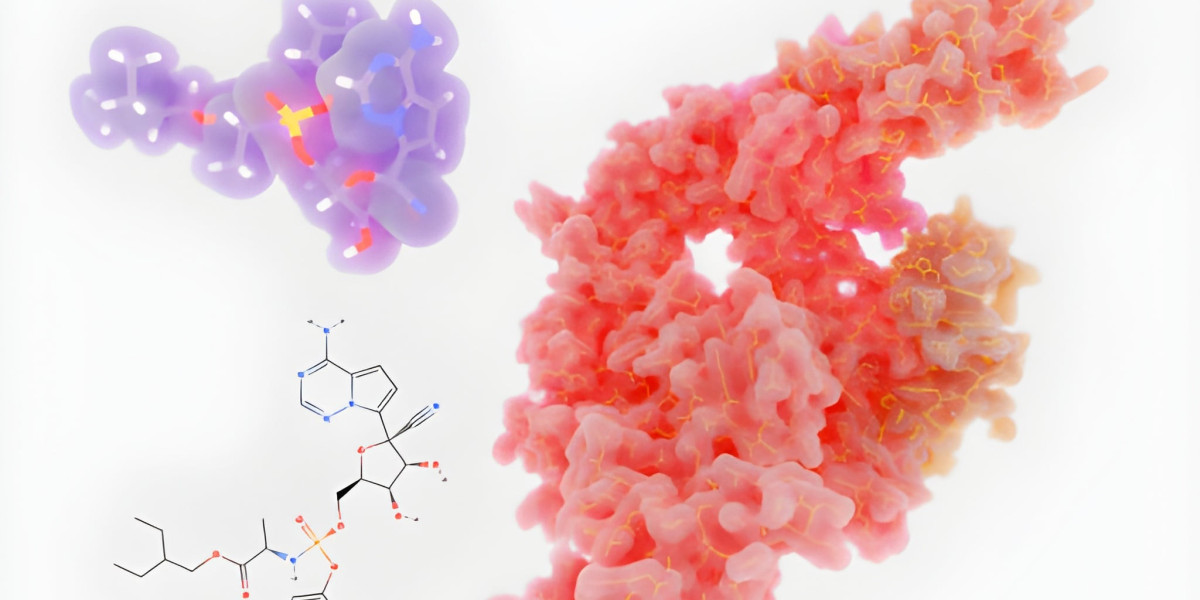Overview of DNA Synthesis Inhibitors
DNA synthesis inhibitors are an essential group of pharmacological agents that disrupt the replication of genetic material, effectively halting the growth of rapidly dividing cells. These agents act on critical enzymes and pathways required for DNA replication, repair, or nucleotide synthesis, thereby preventing DNA duplication and cell division. Their significance spans oncology, antiviral, and antimicrobial therapies, with expanding roles in precision medicine and combination treatment strategies. Increasing research activity, technological advancements, and the rising prevalence of cancer and viral infections are driving the growth of the DNA Synthesis Inhibitor Market.
Mechanism of Action
The therapeutic effect of DNA synthesis inhibitors comes from their ability to target enzymes responsible for DNA polymerization and nucleotide biosynthesis, such as thymidylate synthase, ribonucleotide reductase, and topoisomerases. Fluorouracil, for example, inhibits thymidylate synthase, reducing thymidine triphosphate levels, while hydroxyurea blocks ribonucleotide reductase, preventing the formation of deoxyribonucleotides. This enzymatic inhibition selectively disrupts replication in actively dividing cells, minimizing damage to healthy tissue. The development of next-generation inhibitors with improved specificity and fewer side effects has expanded opportunities in modern pharmacology.
Applications in Oncology
Cancer treatment has benefited greatly from DNA synthesis inhibitors, which exploit the high proliferation rate of malignant cells. Drugs such as methotrexate, cytarabine, and gemcitabine remain staples of chemotherapy, while genomic profiling now enables personalized approaches by matching inhibitors to specific tumor mutations. Combining DNA synthesis inhibitors with immunotherapies or targeted molecular therapies further enhances outcomes. Ongoing DNA Synthesis Inhibitor Clinical Trials continue to refine dosing strategies and evaluate synergistic treatment regimens, supporting a more patient-centered approach to cancer therapy.
Antiviral and Antimicrobial Applications
Outside of oncology, DNA synthesis inhibitors have shown effectiveness against viruses and bacteria. Many viruses depend on host or viral DNA polymerases, which can be selectively inhibited by drugs like acyclovir and ganciclovir, suppressing viral replication without severely affecting host cells. Certain antibiotics, including quinolones, target bacterial DNA gyrase and topoisomerase IV, essential for DNA replication and repair. Rising antimicrobial resistance has intensified efforts to develop innovative inhibitors capable of overcoming resistant strains, encouraging collaboration between pharmaceutical firms and academic institutions to design next-generation DNA Synthesis Inhibitor Drugs.
Clinical Development Progress
Significant advancements in clinical research over the past decade have optimized DNA synthesis inhibitors for therapeutic use. Multiple DNA Synthesis Inhibitor Clinical Trials are underway globally to evaluate safety, efficacy, and tolerability, exploring both monotherapy and combination regimens with radiotherapy or immune checkpoint inhibitors. AI and machine learning have accelerated candidate identification by modeling molecular interactions and predicting pharmacokinetics. Early-phase studies have reported promising outcomes, particularly in hematological malignancies and solid tumors, with biomarkers guiding the design of subsequent trials for precision oncology.
Leading Companies and Industry Landscape
Several DNA Synthesis Inhibitor Companies are driving research and commercialization efforts. Established pharmaceutical leaders and emerging biotech firms are developing small-molecule inhibitors, prodrugs with enhanced bioavailability, and combination formulations to overcome resistance. Strategic collaborations, licensing agreements, and acquisitions are common for strengthening intellectual property and accessing novel technologies. Regulatory incentives and orphan drug designations further encourage innovation, particularly for rare cancers and viral infections, while advanced formulations optimize delivery and therapeutic precision.
Approved and Emerging Therapeutics
Several DNA synthesis inhibitors are already approved and used clinically for cancer, viral infections, and bacterial diseases. Well-known agents like 5-fluorouracil, gemcitabine, and methotrexate remain foundational treatments. Emerging candidates are undergoing clinical evaluation to improve safety and efficacy, targeting resistant cancer cells or viral strains. Nanotechnology and liposomal delivery systems enhance drug stability and tissue targeting, offering improved patient outcomes and marking the next phase in precision therapeutics.
Market Trends and Growth Outlook
The DNA Synthesis Inhibitor Market Size has grown steadily, driven by demand for effective cancer therapies and the rise in infectious diseases. Molecular diagnostic tools facilitate targeted therapy selection, while technological advances and supportive regulatory frameworks allow faster approval of novel inhibitors. Increased research funding and healthcare investment, especially in emerging markets, further support expansion. Analysts anticipate continued growth as new products launch and existing drugs are reformulated for improved efficacy and safety.
Future Outlook and Strategic Forecast
The DNA Synthesis Inhibitor Market Forecast predicts strong growth, driven by ongoing R&D, clinical expansion, and strategic industry partnerships. Integration of AI and genomics will refine drug discovery, enabling precise targeting of tumor and viral mechanisms. Advanced delivery systems and multi-target inhibitors are expected to enhance patient outcomes. As science, technology, and clinical innovation converge, DNA synthesis inhibitors will remain central to the development of next-generation precision therapeutics and modern medicine.
Latest Reports by DelveInsight:
Advanced Cancer Pain Management Market | Bronchiolitis Obliterans Syndrome (BOS) Market | Charcot Marie Tooth Disease Market | COPD Market | Guillain-Barré Syndrome Market | JAK Inhibitor Market | Mayus Kinase JAK Inhibitors Market | Myofascial Pain Syndrome Market | Neurostimulation Devices Market | Orthopedic Trauma Devices Market | Parkinson Disease Market | Acute on Chronic Liver Failure (ACLF) Market | Airway Stent Market | Allergic Rhinitis Market | Anesthesia Workstation Machines Market | Artificial Kidney Market | Atrial Fibrillation Market | Bile Duct Neoplasm Market | Bone Neoplasms Market | Bronchial Neoplasm Market
About DelveInsight
DelveInsight is a leading Business Consultant, and Market Research firm focused exclusively on life sciences. It supports Pharma companies by providing comprehensive end-to-end solutions to improve their performance. It also offers Healthcare Consulting Services, which benefits in market analysis to accelerate the business growth and overcome challenges with a practical approach.
Media Contact
Company Name: DelveInsight Business Research LLP
Contact Person: Abhishek kumar
Email: [email protected]
City: Albany
State: New York
Country: United States
Website: https://www.delveinsight.com








